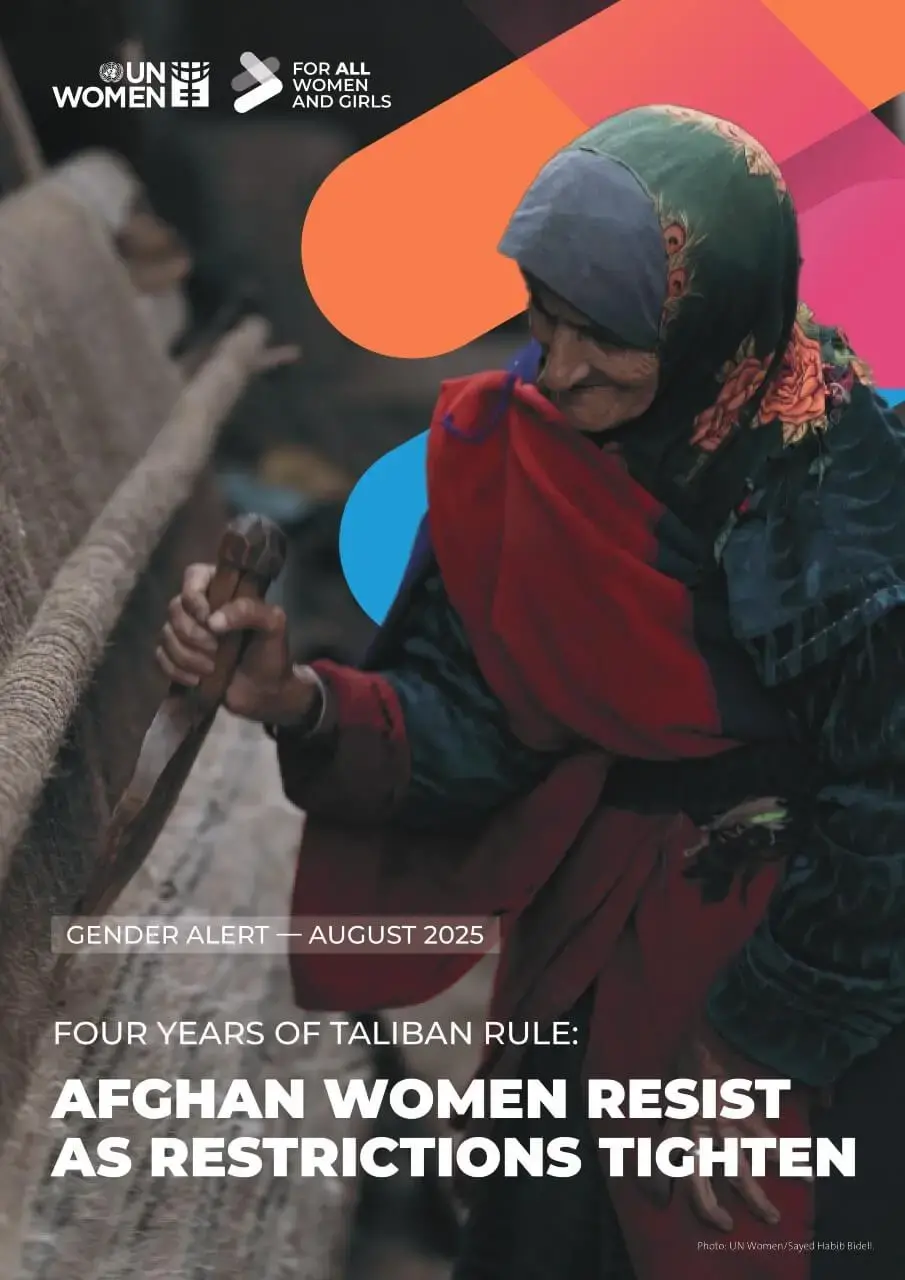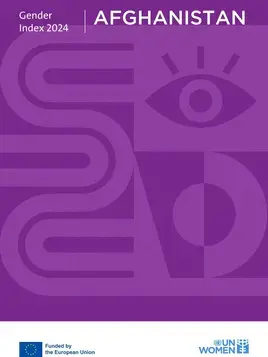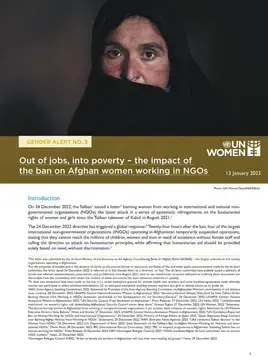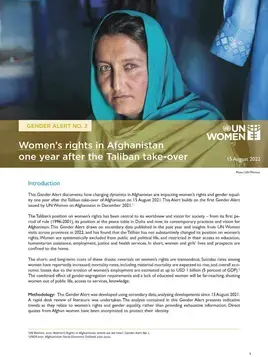
Gender alert: Four years of Taliban rule: Afghan women resist as restrictions tighten
Four years since the Taliban takeover in August 2021, the women’s rights crisis is being normalized. Not a single decree restricting women and girls has been repealed; measures once framed as temporary are now entrenched as the norm. This gender alert counters such normalization by presenting 10 insights gathered through UN Women’s research and analysis undertaken since August 2021.
Despite systemic repression, Afghan women remain resilient, sustaining hope and continuing to contribute as frontline workers, entrepreneurs, and advocates. Yet, enforcement of restrictive decrees has consolidated nationwide, reinforced by the 2024 Law on the Propagation of Virtue and Prevention of Vice.
Education and employment bans have sidelined a generation, with nearly 80 per cent of young women excluded from education, employment or training. Women’s mobility and safety have further eroded, with mahram requirements and surveillance undermining access to services, livelihoods, and public life. Women’s representation in decision-making has disappeared entirely, though inheritance rights remain a narrow entry point. Funding cuts are further constraining women-led organizations, jeopardizing the few remaining civic spaces. At the same time, large-scale refugee returns, many forcibly, are compounding vulnerabilities.
The alert calls for sustained, flexible funding for women’s organizations, a minimum of 30 per cent of aid directed to gender equality, and the centrality of women’s rights in all humanitarian, development, and political interventions.


